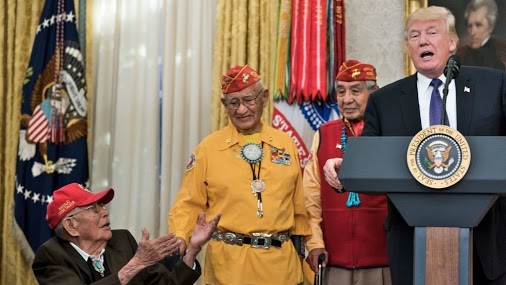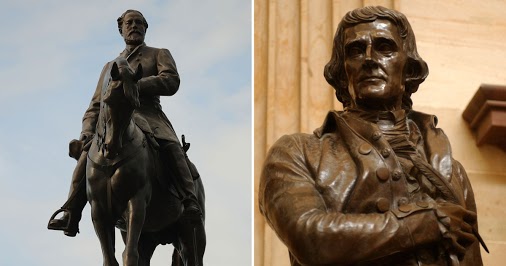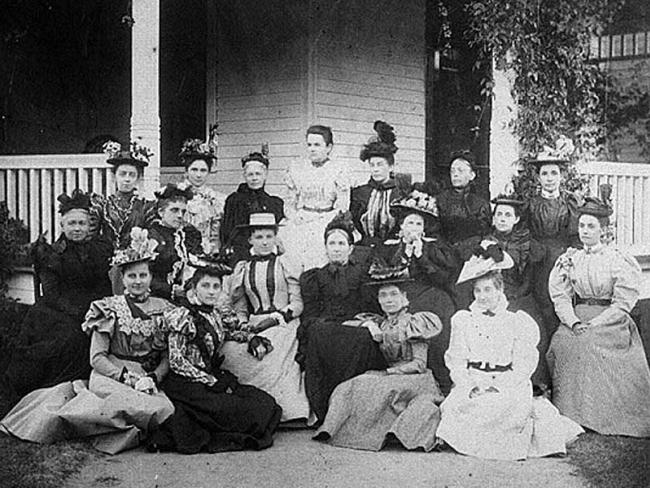Start with the premise that People Are People. Everyone, even great creators, profound philosophers, brilliant leaders … everyone has feet of clay, personality aspects that are troubling, dubious, or even just simply annoying.
Is the greatness of such people weakened by, or in spite of, those flaws.
As a guy with an historical bent, this is always a question. To what extent do we look at the reprehensible aspects of an historic personality, particularly those that are reprehensible by modern standards, and use that to inform our views of their other achievements?
Thomas Jefferson was a spendthrift, a man who could be be offended by petty things, and a slaveholder who had children by at least one of his slaves. On the other hand, he crafted seminal writings on freedom, liberty, and independence in the founding of our country — including, ironically, an attack on King George III on the slave trade. How do we blend those different aspects of Jefferson into a simple thumbs-up or thumbs-down?
Teddy Roosevelt was a progressive icon, a man who broke the hold (for a time) of business interest rule over the Republican Party and the nation’s laws. Teddy Roosevelt also held some (certainly from a modern perspective) deplorable views about different races. Do I think he should remain on, or be chiseled off of, Mt. Rushmore?
Fast forward to today. As we look at Hollywood creators (or, as in the article’s case, a modern poet), to what extent do we judge or reject their art based on what we learn about their personal lives?
This has nuances, too — there are actors, artists, musicians, writers, whose work I enjoy, but who hold political opinions I find irksome at best, abhorrent at worst. These are not people who have committed crimes (or profoundly disturbing acts), but simply hold opinions I find, let us say, deplorable. Do I still enjoy their work, or does my opinion of the person bleed into my feeling about the creation? Do I buy their books and so support them and their causes?
In the case of the current Hollywood crowd under accusation of sexual impropriety and assault, an additional feature is wanting to keep them from being in a position to further perpetuate their antisocial and violating behavior. A director who groped people on the set, or demanded sexual favors off the set, should be kept out of such positions of power, even if not capable of being tossed in the hoosegow. If that means no more movies from that director, so be it.
But does that mean one needs to ever after shun that director’s movies already made to date?
Bill Cosby’s early stand-up routines are comedy gold. Bill Cosby evidently committed sexual assault. I would not pay a penny to go see Cosby perform now, because I would not reward him with even a fraction of my penny.
But if I have a recording of Cosby’s brilliant routine about Noah, should I delete it out of solidarity with his victims? (Can I, on the other hand, listen to it without thinking about his subsequent crimes?) (And, yeah, his revealed behavior gives a whole new, and much darker, perspective on his Adam and Eve “C’mere, c’mere, c’mere, g’way, g’way, g’way” piece.)
Charlie Rose did some remarkable, insightful, interesting interviews. Should those interviews now be disappeared because Rose turns out to have been a rather ugly individual when not doing his interviews? It’s one thing to fire him from doing further work and exposing more people to him in a position of power. It’s another thing to say, “All his work is tainted, and so should be rejected.”
I don’t have a clean answer to any of this. For historic personages, I tend to say, “What did they do for which they are famous?” (thus shielding Jefferson, whose reputation is based not on his slave-holding but writing the Declaration of Independence and the Virginia Declaration of Religious Freedom). For modern personages, I tend toward “Protect future victims, but enjoy the created art for what it is, not who made it.”
But I can think of exceptions for all of those, and it’s more difficult to extract the the creator from the creation, emotionally, than those simple rubrics allow.
The real world is messy.
[As a side note. NPR’s headline characterizing Pound’s pro-Axis broadcasts and calls for “yids” to be legally killed, as well as FDR, as “politics” seems a bit of a stretch for purpose of alliteration.]

Do Politics Matter In Poetry? New Biography Explores The Case Of Ezra Pound
A central figure in 20th century poetry, Pound was also an outspoken fascist. In The Bughouse, Daniel Swift investigates whether or not the poet’s politics and madness matter to his work.
View on Google+




















